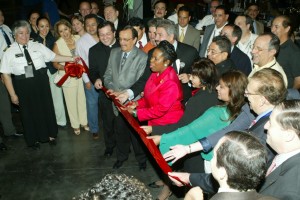Latinos Lag In New Business Creation
By: Victor Escalante, NewsTaco 
A survey from The University of Texas, released this past week in San Antonio, at the annual convention of The Texas Association of Mexican American Chambers of Commerce showed that Latinos in Texas, start businesses at a lower rate than non-Latino white entrepreneurs.
The conclusions are sobering, but relative to how one frames the data. Here are the facts; Latino businesses generate less revenue, hire fewer workers, and frequently don’t grow. It gets worse; Latinos have lower levels of assets, fewer parents with business experience, and small business networks. One media outlet went so far as to compare the growth of Latinos in numbers to the disproportionate level of growth in Latino businesses.
The survey is a definite wakeup call for Hispanic Chambers of Commerce to spearhead a change of this trend. It is imperative that they lead the way to provide what respondents say are their critical needs, namely, training in management and leadership, customer relations, and communication.
The good news is Latino businesses are a large part of the economic recovery. According to a U.S. Census report Hispanic owned businesses in the nation increased by more than double the national rate. Between 2002 and 2007 Hispanic entrepreneurs started 15, 038 new businesses topping out at 44,206. The ambition to start and own a viable business is much higher since these figures only factor businesses with receipts of at least one million dollars.
The cities with the largest number of Hispanic owned businesses in descending order are El Paso, San Antonio, Houston, Albuquerque and Los Angeles.
Having lived in El Paso, San Antonio, and Laredo, it is easy to explain why this is the case. El Paso is an oasis in the Chihuahua dessert that is thousands of years old. Legend has it that the first Spanish explorer Juan de Oñate celebrated the fist thanksgiving in 1508, decades before Plymouth Rock. El Paso has a 59.8 percent of very diverse Hispanic owned businesses. The city grew around Fort Bliss and the downtown saloons in the wild wild west.
Houston, the nation’s fourth largest city is not as old as the others. But it has several generations of Hispanic owned businesses. According to Rice University’s sociology professor Stephen Klineberg, Houston has attracted a lot of immigrants due to it’s petrochemical and construction boom. Many of these immigrants have assimilated into the culture and now make up the majority demographic. Although immigration has recently been negative in the political narrative, according to Mr. Klineberg immigration has been a net positive effect for Houston. His prediction echos what other demographers prognosticate that Hispanics will be the majority in the year 2050.
The Hispanic entrepreneurial spirit can be seen firsthand by visiting any of the large flea markets in any large city in the country. Houston has fueled and supplied that demand by building these markets in the predominantly Hispanic areas. Many of these markets have been the incubator of businesses that have grown to brick and mortar merchants.
According to the census report the top industries that Hispanics own business in are:
- Construction
- Repair and maintenance
- Administrative and support
- Health care and social assistance
- Transportation and warehousing
While these industries represent the top billing, in my experience the long tail has every market segment including; small grocery stores, carnicerias, financial services, insurance, retail, and others.
To put this in perspective Hispanic owned businesses in 2007 generated receipts of 274.5 billion. But the Hispanic spending is now over one trillion dollars in 2010. If Hispanics in the US were a country they would be larger in numbers and in GDP than Canada.
The take away of this cuento is, we have come a long way, and we have a long way to go to play on a level business field. .
[Photo by Victor Escalante]In photo U.S. Congresswoman Sheila Jackson Lee cutting ribbon to start a Latino Expo

